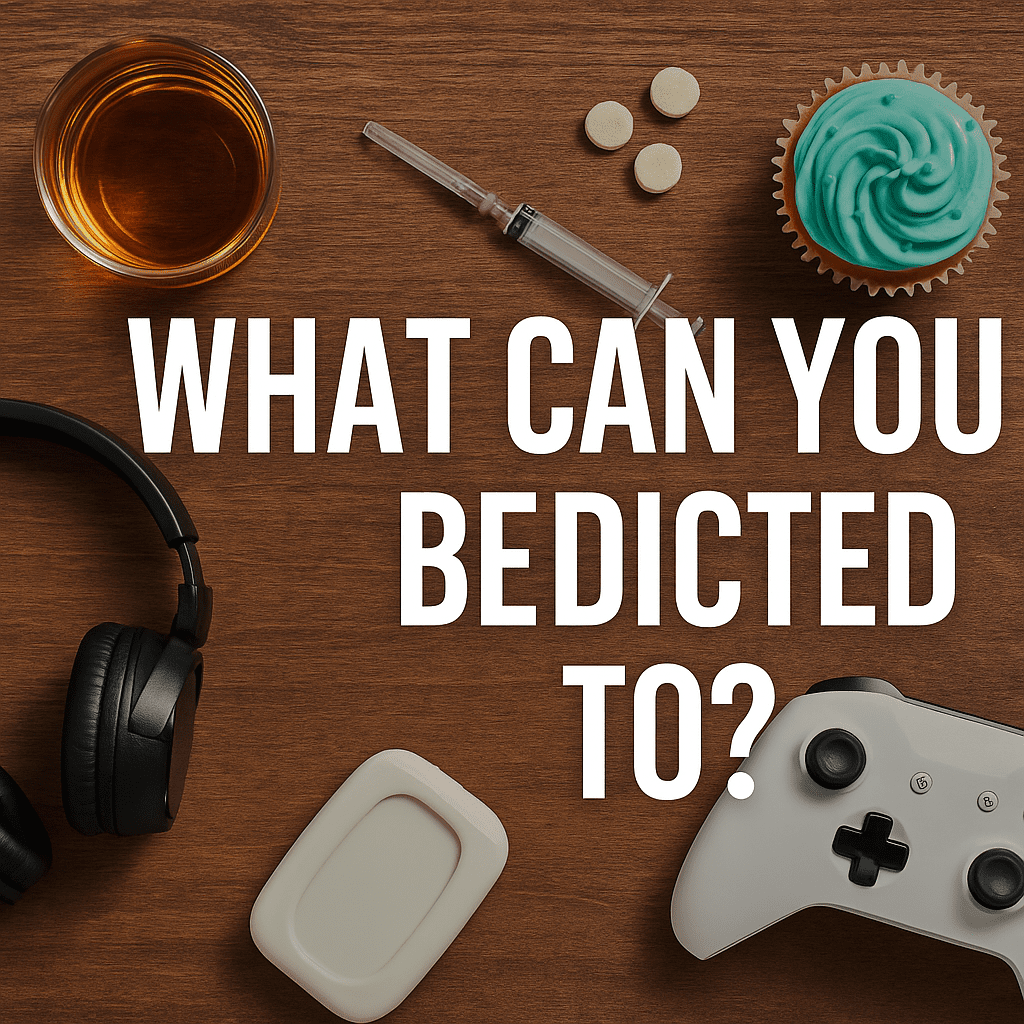Last Updated on August 27, 2025
Table of Contents
Addiction doesn’t only mean drugs or alcohol. You can be addicted to anything—from substances to behaviors. This guide explores what makes something addictive, outlines various types of dependence, and helps you understand when it’s time to seek help.
What Makes Something Addictive?
At its core, addiction involves the brain’s reward system—it learns that a substance or behavior brings pleasure or relief and encourages repeated use. Over time, compulsive habits form that persist despite negative consequences. The brain changes, making willpower alone often insufficient.
Types of Addiction - Substance vs. Behavior
Substance Addictions
These involve chemical dependencies on things like alcohol, nicotine, opioids, or prescription medications. They can trigger intense cravings, tolerance, and withdrawal symptoms.
Behavioral (Non-Substance) Addictions
You can indeed be addicted to behaviors. Such behavioral addictions include gambling, gaming, shopping, or even seemingly harmless activities like exercising or using your phone
Freedom Starts Here. Take Back Your Life Today.
Same-Day Admissions in Austin Available.
Common Things People Can Be Addicted To
Gambling
One of the earliest recognized behavioral addictions, gambling remains one of the few formally recognized in the DSM‑5.
Gaming & Internet Use
Internet gaming disorder appears in ICD‑11 and is under study in DSM‑5. It involves compulsive play that disrupts daily life.
Exercise
Healthy activity becomes addictive when compulsively pursued despite injury or life interference. Withdrawal-like symptoms occur when stopped.
Shopping
Compulsive buying involves an uncontrollable urge to shop—even when unnecessary or harmful—often tied to emotional triggers.
Nomophobia (Phone Dependence)
Fear of being without one’s phone or disconnected can be distressing and mirrors addiction patterns.
Food and Eating
Approximately 29% of overweight or obese individuals identify as addicted to food—especially items high in sugar, salt, or fat .
Why These Addictions Develop
Brain Chemistry and Reward Loops
Actions or substances that spike dopamine reinforce themselves—making quitting harder.
Emotional Self-Medication
People often turn to addictive behaviors to numb stress, anxiety, or loneliness—think excessive social media, food, or alcohol use.
Accessibility & Societal Reinforcement
Technology, advertising, and availability make habits easier to start and harder to stop. Withdrawal from tech can feel as intense as from heroin.
Recognizing Signs of Addiction
Feeling unable to quit despite awareness of harm
Neglecting responsibilities and personal care
Withdrawal symptoms when not engaging in the behavior
Needing more of the behavior/substance to feel the same reward (tolerance)
Getting Help for Behavioral Addictions
f a behavior is disrupting your life, consider cognitive-behavioral therapy, support groups, or professional guidance—just as you would for substance addiction
What is behavioral addiction?
A dependency on actions rather than chemicals—if an activity becomes compulsive and damaging, it’s a behavioral addiction
Can something like exercise be an addiction?
Yes—when exercise is compulsive, injurious, or interferes with life, it’s considered addiction.
Is food addiction recognized?
While controversial, many experts acknowledge compulsive overeating as an addiction-like condition, particularly with high-sugar or high-fat foods.
Are phone or social media habits addictive?
Yes—many experience nomophobia or tech withdrawal symptoms similar to substance addictions.
How can someone get help for non-substance addiction?
Treatment options include therapy, support groups, behavior modification, and professional interventions.
